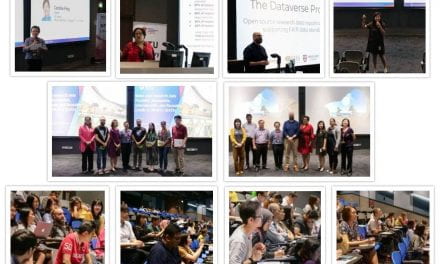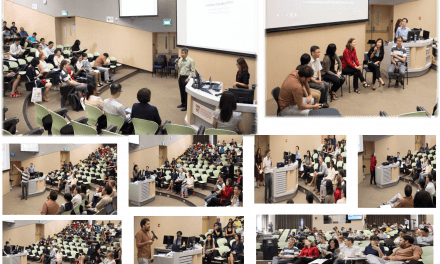On 22 April, the fourth session of the ReproducibiliTea Journal Club Season 2 discussing teaching reproducibility, was conducted. The session was facilitated by Michelle Neoh and the discussion was about the article by Chopik and colleagues “How (and whether) to teach undergraduates about the replication crisis in psychological science”.
The session began with a brief introduction to the replication crisis and a summary of the key points of the article. Current problems faced in teaching reproducibility include (i) material about replication crisis are not being taught to undergraduates, (ii) difficulty in integrating and introducing topics on the replication crisis and reproducibility and (iii) ability of students in fully comprehending the replication crisis. The authors created a lecture communicating issues surrounding the replication crisis and recommendations to increase reproducibility. All materials from the study, including the lecture slides, script and questionnaires, are made available on Open Science Framework (OSF).
Members of the discussion shared their experiences on when and how they first learnt about the replication crisis and it was interesting to hear about all the different experiences everyone had. The discussion also turned to the “optimal” time to introduce this topic to students and it seems that most felt that it would be good to introduce to undergraduates early since it is linked to how research is conducted. Suggestions to increase exposure and awareness of the topic such as integration of material on the replication crisis into courses on research methods, greater leverage of social media platforms and collaborations with institutional libraries to provide workshops for students to learn more about the topic and available resources. A key focal point of the discussion was to understand the nuances of reproducibility and refrain from instituting reproducibility as a rigid dichotomy and equating reproducibility with “good” or “strong” research. Rather, striking a balance and understanding that reproducibility is not a necessity for research to be “good” or “strong” is an important takeaway from the discussion. Lastly, our thanks to all those who joined the discussion!
Click here to view the discussion slides
In our next session on 29 April (2-3pm), Ng Li Ying will be leading the discussion on the Theory and Philosophy of Science with the article Theory-Testing in Psychology and Physics: A Methodological Paradox (Philosophy of Science, 32, 2, 1967) by Paul Meehl. Read the paper and join our Open Science chat at:
https://ntu-sg.zoom.us/j/99534005049
Meeting ID: 995 3400 5049. Passcode: 032787
Click here for the schedule of the Singapore ReproducibiliTea Journal Club sessions.









